The Netherlands attracts people from all over the world with its interesting cities, high quality of life and well-thought-out infrastructure. From vibrant Amsterdam to tranquil Utrecht, there is something for everyone.
In this article we will look in detail at the best cities in the Netherlands for living and find out in which of them you should buy property.
Amsterdam is a dynamic capital city with an outlook
The capital city of Amsterdam is renowned for its developed infrastructure, cultural opportunities and stable property market. The city offers the best standard of living, making it an ideal location in the Netherlands. Amsterdam is also the country’s largest economic and cultural centre with many opportunities for work and career development. Key advantages include an excellent transport network, including an extensive system of trams and cycle paths.
Transport Infrastructure:
- Trams and buses run every 10-15 minutes.
- A developed network of bicycle paths with a length of more than 500 kilometres.
- A train system that allows you to reach other cities in less than an hour.
Taxes and utilities:
- Property tax is about 0.05% of the value.
- Utility bills – on average 150-200 euros per month, including water, electricity and gas.
Cost of living and property prices
The cost of living in Amsterdam is higher than in other Dutch cities, but it is compensated by the convenience and high quality of services. The average price of a flat in Amsterdam is about 5000-6000 euros per square metre, depending on the area. The closer to the centre, the higher the price, but investing in Amsterdam real estate remains a profitable and promising option.
Property prices:
- In central areas: from 6000 euros/m².
- In neighbourhoods on the outskirts: from 4500 euros/m².
- Average rent per flat: 1500-2000 euros per month.
Additional Costs:
- Property purchase tax: 2% of the property value.
- Legal services and formalisation: about 2000-3000 euros.
Areas of greatest interest to the Russian-speaking community
For the Russian-speaking population, Amsterdam also offers plenty of amenities and attractive neighbourhoods. One of the most popular is Zeiderham, where there are internationally orientated schools and many cultural facilities. This makes Amsterdam the best city in the Netherlands to live in with a large Russian community where Russian speakers can feel at home. Also popular are the neighbourhoods of De Pape and Oosterdok, offering a combination of tranquillity and affordability.
Rotterdam – an innovation centre with affordable housing
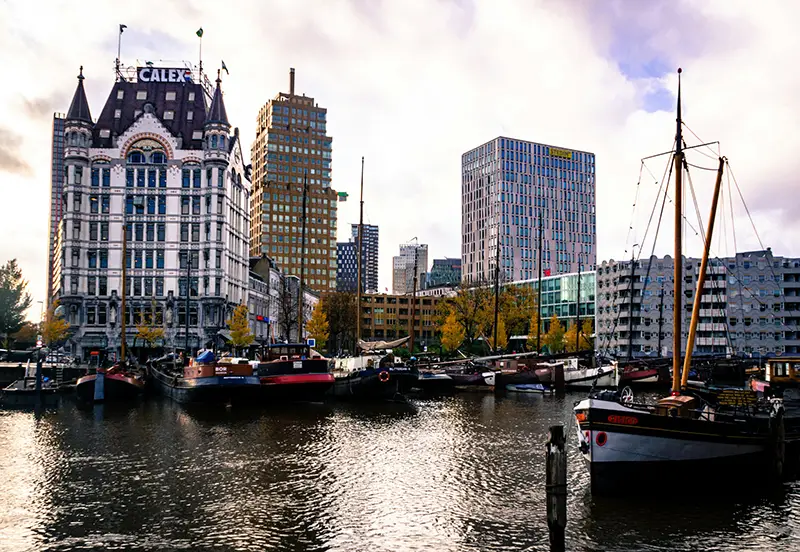 Rotterdam is considered an ideal place for young professionals and entrepreneurs due to its cosy atmosphere and affordable housing. The city is actively developing and attracts people from different countries. The largest port in Europe is located here, which contributes to the development of logistics and maritime business. Young professionals choose Rotterdam as the best city in the Netherlands to live for work due to the many start-ups and favourable conditions for career development.
Rotterdam is considered an ideal place for young professionals and entrepreneurs due to its cosy atmosphere and affordable housing. The city is actively developing and attracts people from different countries. The largest port in Europe is located here, which contributes to the development of logistics and maritime business. Young professionals choose Rotterdam as the best city in the Netherlands to live for work due to the many start-ups and favourable conditions for career development.
Jobs and Careers:
- Port and logistics companies are actively hiring.
- The IT and startup sector is growing rapidly.
- Support programmes for young entrepreneurs, including subsidies and grants.
Housing costs and investment prospects
One of the main advantages of Rotterdam is affordability. The average cost of property here is lower than in Amsterdam and ranges between 3000-4000 euros per square metre. A great place for those who want to start investing in property. The Netherlands’ best cities to live in with affordable housing offer great opportunities to buy a flat for the future, and Rotterdam is definitely on the list.
Property prices:
- Flats in the centre: from 3500 euro/m².
- On the outskirts: around 3000 euros/m².
- House rent: 1000-1500 euros per month.
Investment Opportunities:
- Projected property value growth: 5-7% per year.
- High rental demand among students and young professionals.
Developed infrastructure and social life
Rotterdam is known for its cultural diversity and active social life. Numerous museums, festivals and exhibitions make the city attractive to people of all ages. The metropolis is also characterised by a well-developed environment: the transport system is clear and modern residential complexes include everything you need for a comfortable life. This makes Rotterdam the best city in the Netherlands to live in, with a well-developed infrastructure where there is something for everyone.
Utrecht – cosiness and tranquillity in the heart of the Netherlands
Utrecht is located in the heart of the country and is considered a great place for family life and for those who want to enjoy a peaceful retirement. One of the best cities in the Netherlands for retirement living, it is cosy, with plenty of parks and a beautiful historical centre where life flows at a leisurely pace. Here you can find many places for recreation and walks, as well as take advantage of quality medical services.
Security and crime rates
Utrecht has one of the lowest crime rates in the Netherlands. The city administration actively takes care of the safety of residents by installing CCTV cameras and developing police liaison systems. Everyone can feel comfortable walking the streets here, even at late hours.
Safety Measures:
- CCTV cameras have been installed in most public places.
- Active engagement programmes with local police stations.
- Neighbourhood watch programmes and community support.
Social and cultural life
Utrecht is famous for its cultural events and festivals that take place here throughout the year. Many museums, theatres and cafés make the metropolis a truly attractive city in the Netherlands for those who appreciate cultural and social life. The beautiful canals and old architecture create an atmosphere of tranquillity and cosiness.
Conclusion
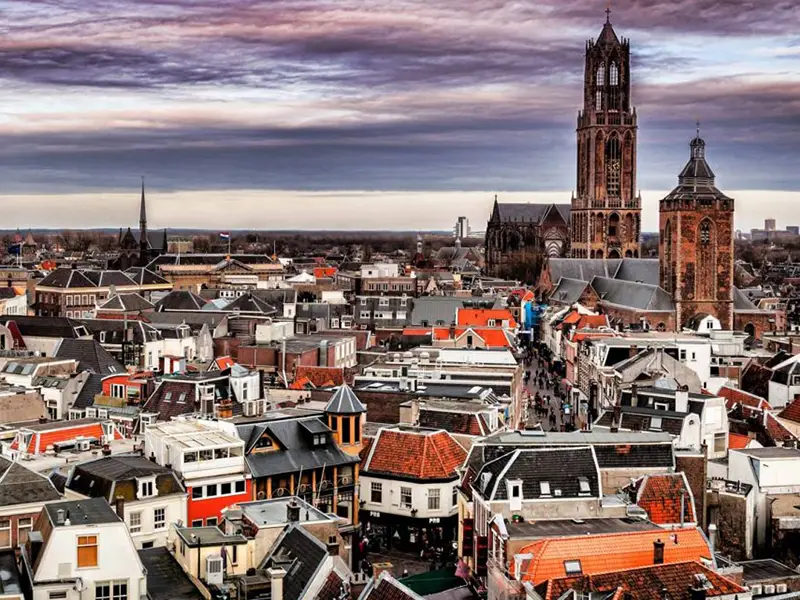 The Netherlands is a country with a rich selection of cities, each offering a unique living environment. Therefore, before making a choice, it is important to carefully weigh all factors and find the place that best suits your needs.
The Netherlands is a country with a rich selection of cities, each offering a unique living environment. Therefore, before making a choice, it is important to carefully weigh all factors and find the place that best suits your needs.

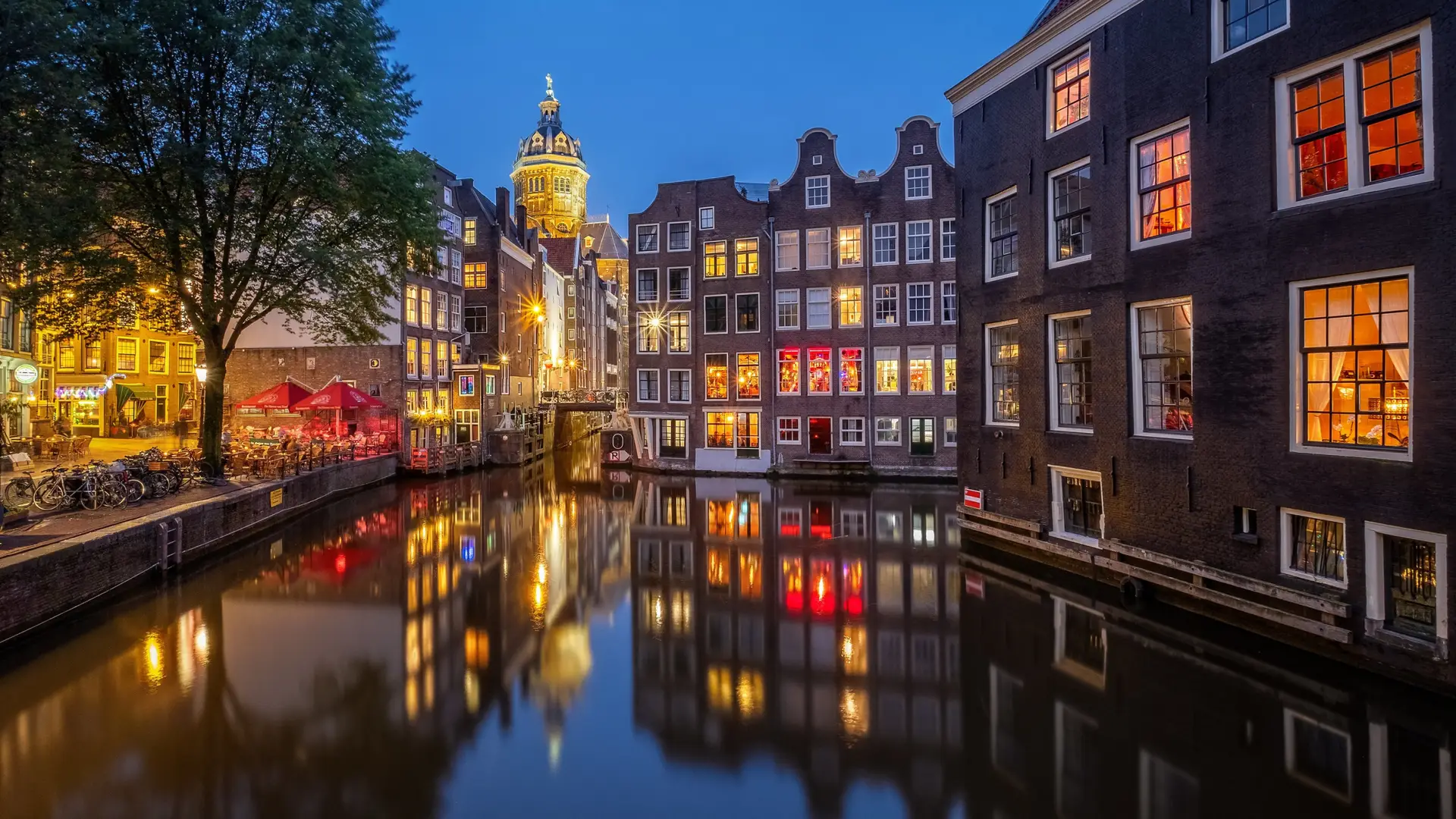

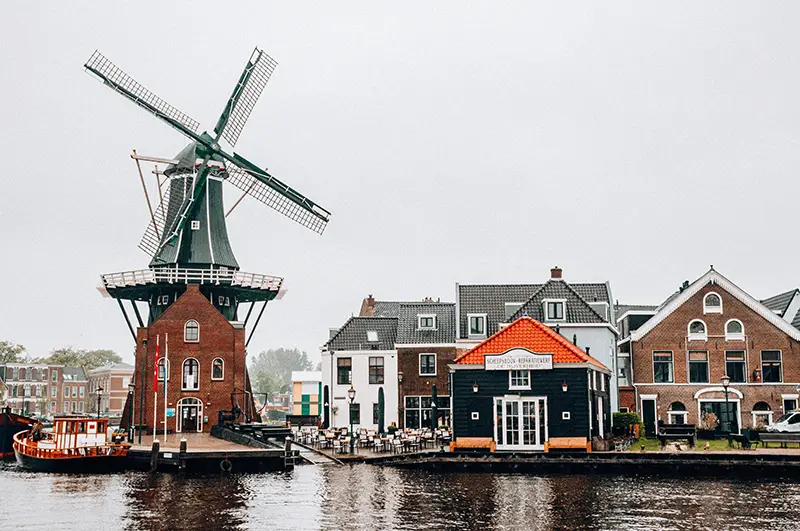 A symbol of prestige and success that distinguishes its owner. Each property is unique, be it the view of Amsterdam’s picturesque canals, the designer interiors or the proximity to significant cultural sites. Owning a luxury property in the Netherlands emphasises refined taste and is a sign of a high standard of living, providing opportunities to enjoy all the benefits of the modern world.
A symbol of prestige and success that distinguishes its owner. Each property is unique, be it the view of Amsterdam’s picturesque canals, the designer interiors or the proximity to significant cultural sites. Owning a luxury property in the Netherlands emphasises refined taste and is a sign of a high standard of living, providing opportunities to enjoy all the benefits of the modern world.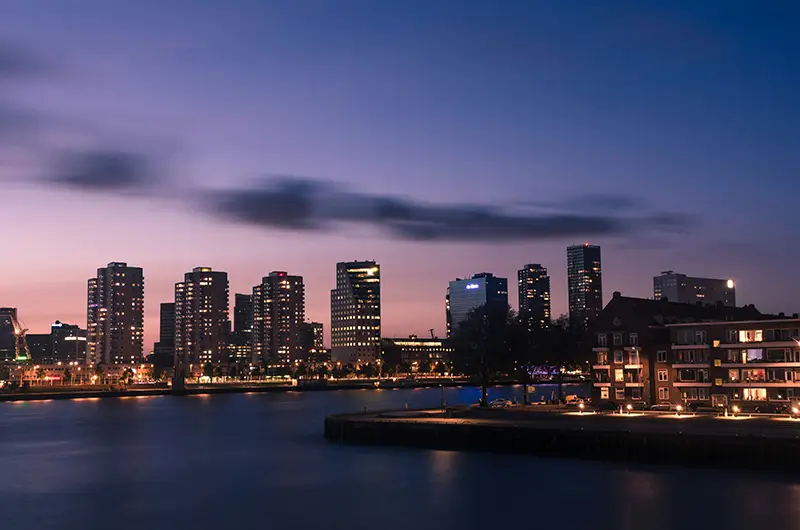 Buying property in the Netherlands is an investment in stability, prestige and a high standard of living. It is an opportunity to become part of a unique culture, enjoy architectural masterpieces and secure a future for yourself and your family in one of the most progressive countries in Europe. The birthplace of Rembrandt offers everything you need for comfort and successful business. Buying a flat in the Netherlands is not only an investment in the present, but also a certainty for the future.
Buying property in the Netherlands is an investment in stability, prestige and a high standard of living. It is an opportunity to become part of a unique culture, enjoy architectural masterpieces and secure a future for yourself and your family in one of the most progressive countries in Europe. The birthplace of Rembrandt offers everything you need for comfort and successful business. Buying a flat in the Netherlands is not only an investment in the present, but also a certainty for the future.
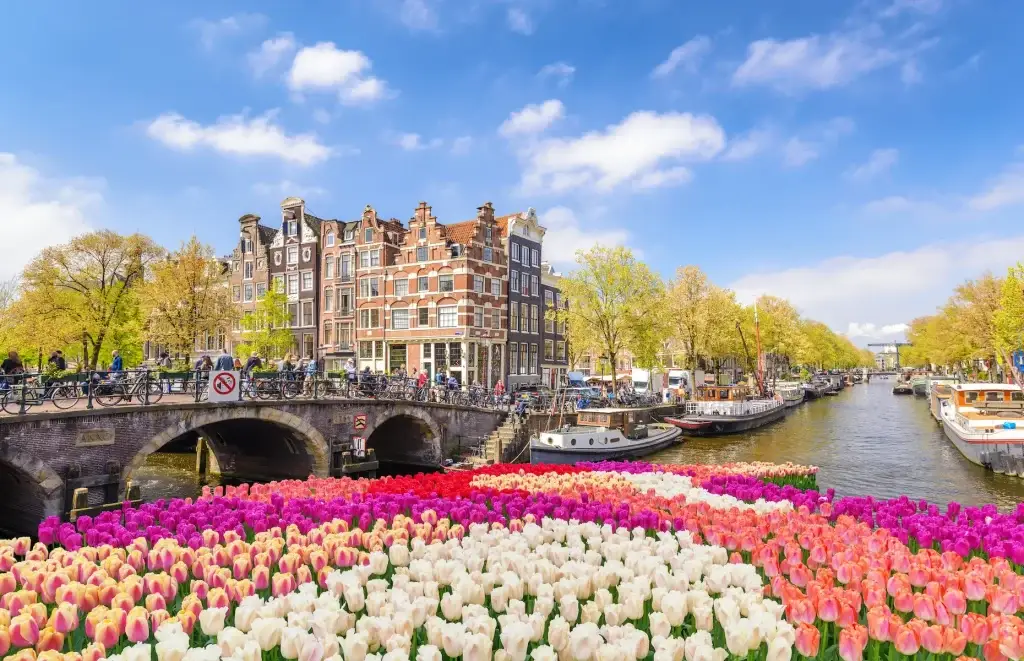 Dutch minimalism is about everything: design, everyday life, socialising. To live in Holland means to live rationally. Transport – bicycles, trams and intercity transport at the expense of the state (if you are a student or a trainee). Tap water is the purest, electricity comes from the wind.
Dutch minimalism is about everything: design, everyday life, socialising. To live in Holland means to live rationally. Transport – bicycles, trams and intercity transport at the expense of the state (if you are a student or a trainee). Tap water is the purest, electricity comes from the wind.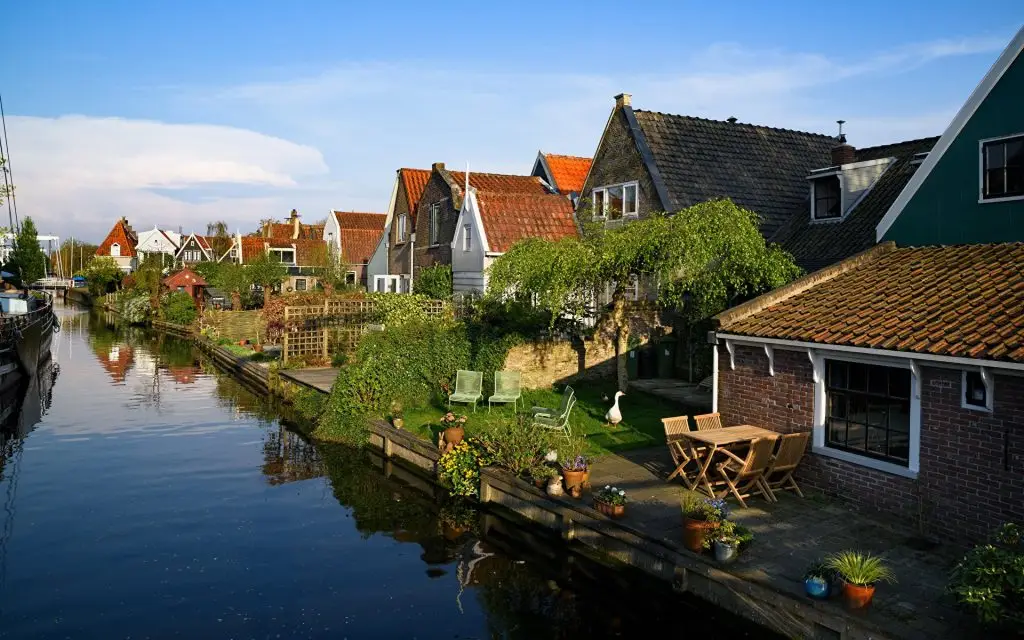 A country for those who are ready to work, to change, to invest. Life here is not soft, but it is honest. Moving is not a solution to problems, but a step into an environment where activity is valued over complaining.
A country for those who are ready to work, to change, to invest. Life here is not soft, but it is honest. Moving is not a solution to problems, but a step into an environment where activity is valued over complaining.
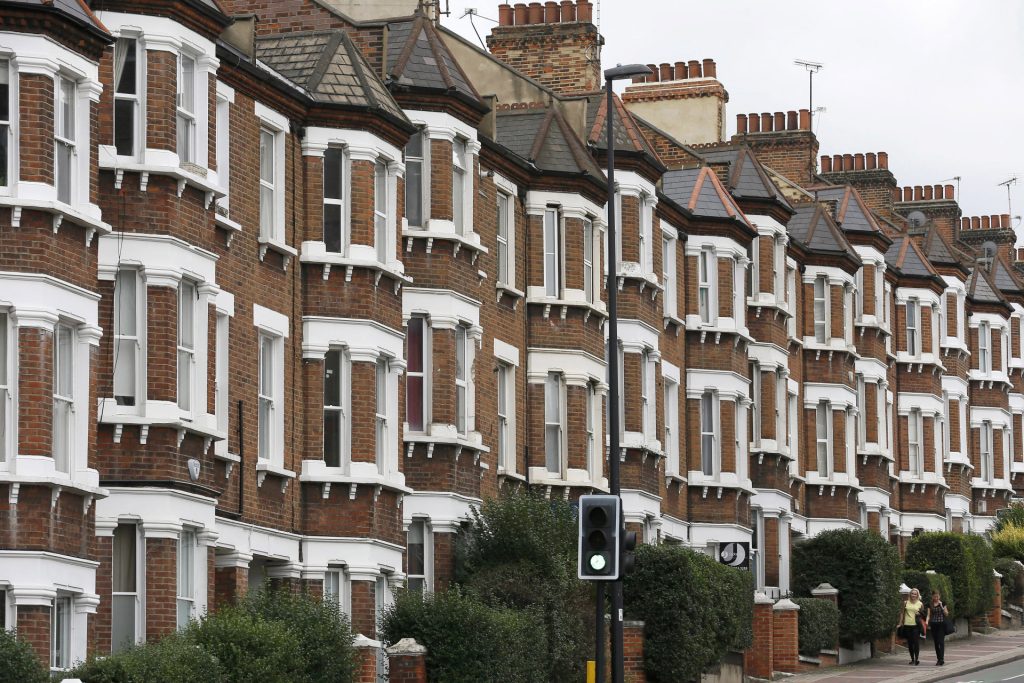 Foreigners can buy any type of property – a house, a flat or a plot of land. But mortgages are granted only if you have a residence permit or EU income. The bank will ask for proof of employment, tax history, credit rating and a deposit of 20-30%.
Foreigners can buy any type of property – a house, a flat or a plot of land. But mortgages are granted only if you have a residence permit or EU income. The bank will ask for proof of employment, tax history, credit rating and a deposit of 20-30%.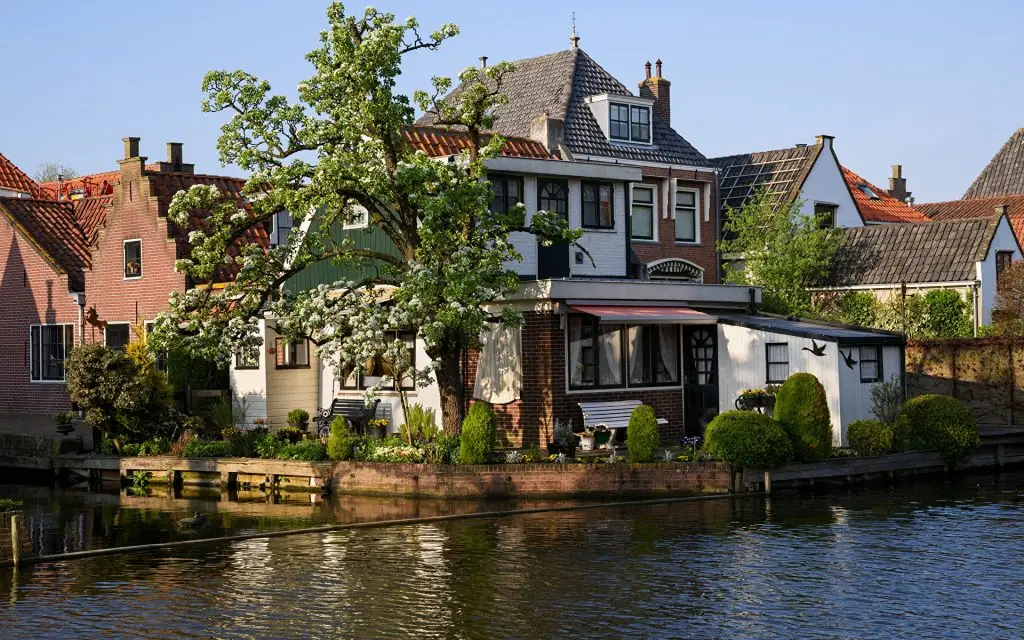 Buying a property in the Netherlands in 2025 is an informed decision, not an emotion. The property must be fit for purpose: investment, residence or migration. With a clear strategy and proper design, the property becomes a stable asset rather than a burden.
Buying a property in the Netherlands in 2025 is an informed decision, not an emotion. The property must be fit for purpose: investment, residence or migration. With a clear strategy and proper design, the property becomes a stable asset rather than a burden.
 The optatisation procedure is not an indulgence, but a recognition of the rights of persons historically linked to the Netherlands. It is one of the least known but realistic ways of obtaining Dutch citizenship.
The optatisation procedure is not an indulgence, but a recognition of the rights of persons historically linked to the Netherlands. It is one of the least known but realistic ways of obtaining Dutch citizenship.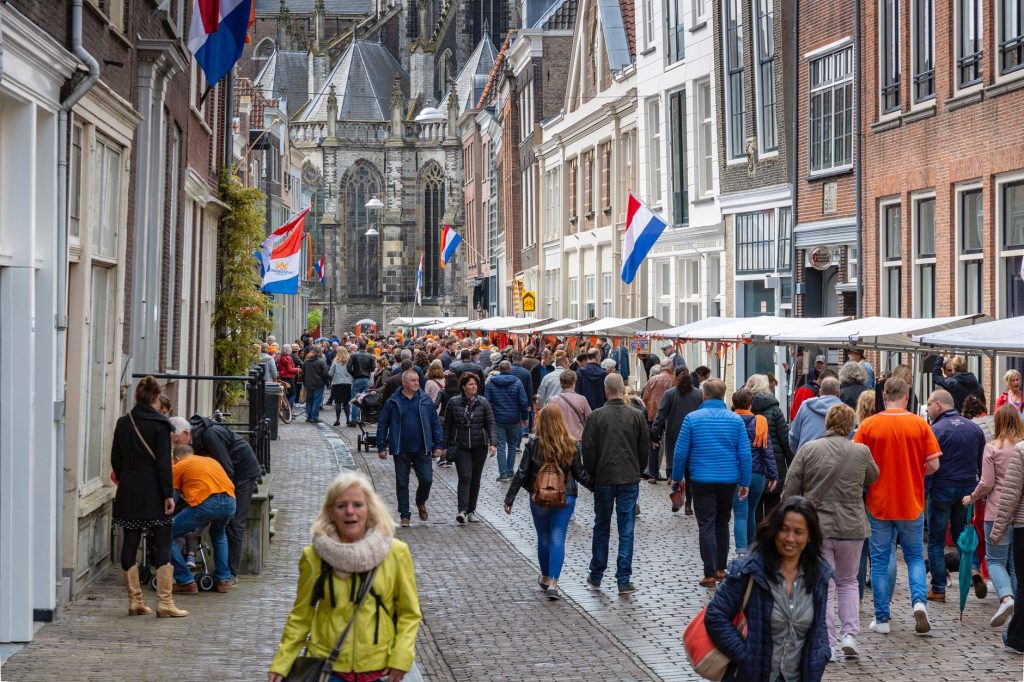 Obtaining Dutch citizenship is a process that requires careful planning and strict adherence to regulations. Each path available consists of sequential steps that go far beyond mere formality. Citizenship status cannot be achieved without proven integration into society, proficiency in the national language and demonstration of strong ties to the country.
Obtaining Dutch citizenship is a process that requires careful planning and strict adherence to regulations. Each path available consists of sequential steps that go far beyond mere formality. Citizenship status cannot be achieved without proven integration into society, proficiency in the national language and demonstration of strong ties to the country.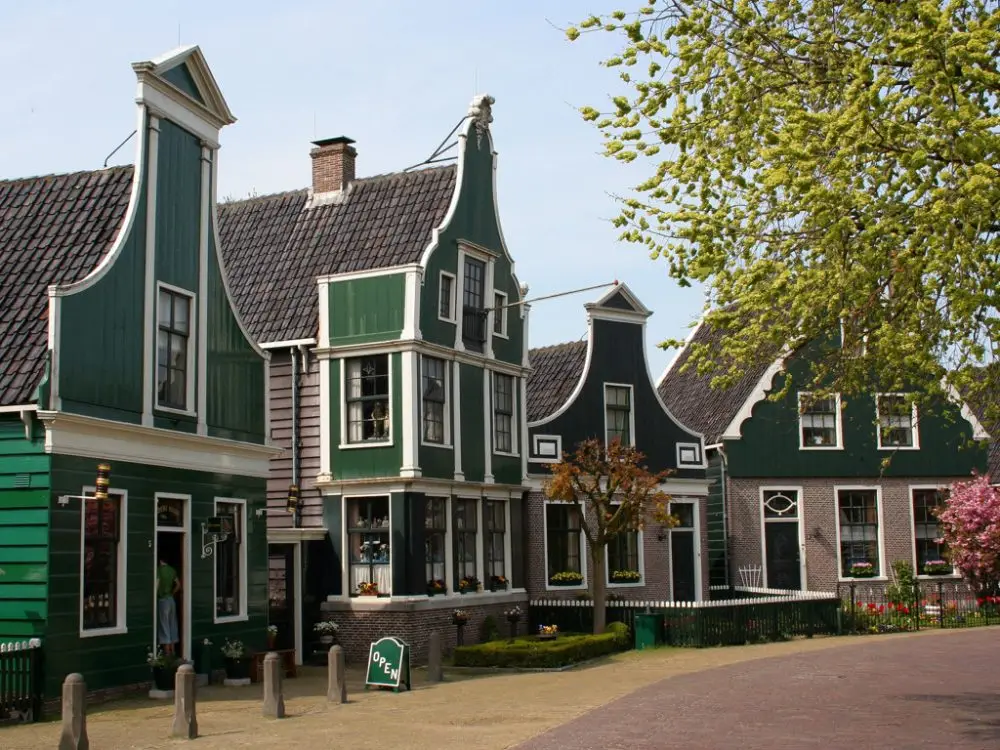
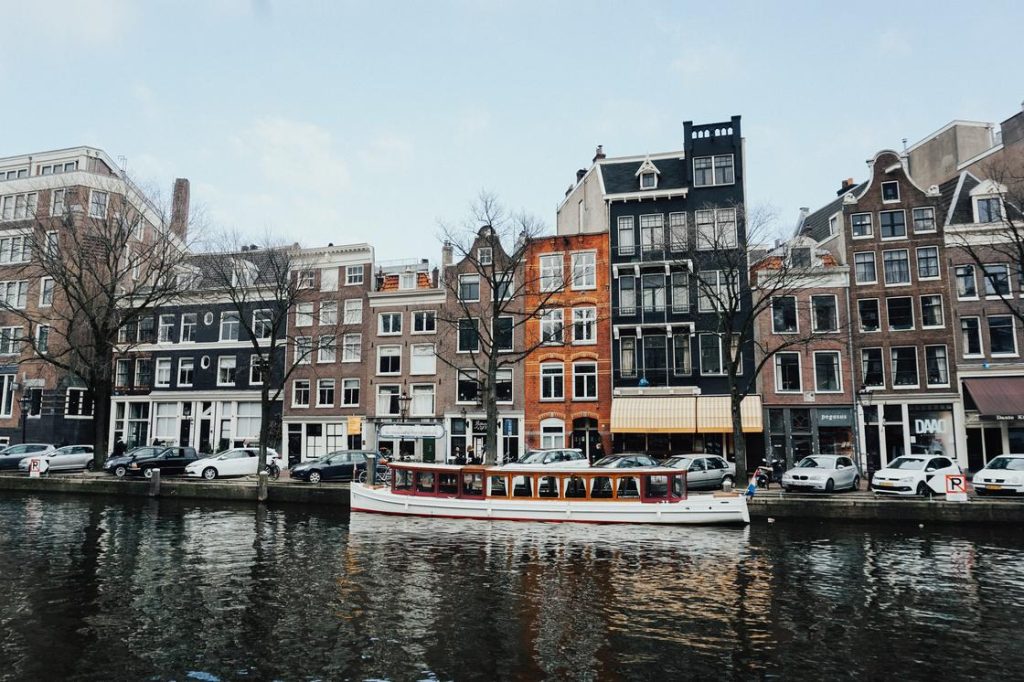 In addition to property tax in the Netherlands, every owner of a property is required to pay a number of municipal fees each year, the amount of which varies from locality to locality. Onroerendezaakbelasting (OZB) is a part of the fiscal burden that includes, among other things, mandatory fees. These fees are used to support the city’s infrastructure as well as to finance public utilities.
In addition to property tax in the Netherlands, every owner of a property is required to pay a number of municipal fees each year, the amount of which varies from locality to locality. Onroerendezaakbelasting (OZB) is a part of the fiscal burden that includes, among other things, mandatory fees. These fees are used to support the city’s infrastructure as well as to finance public utilities.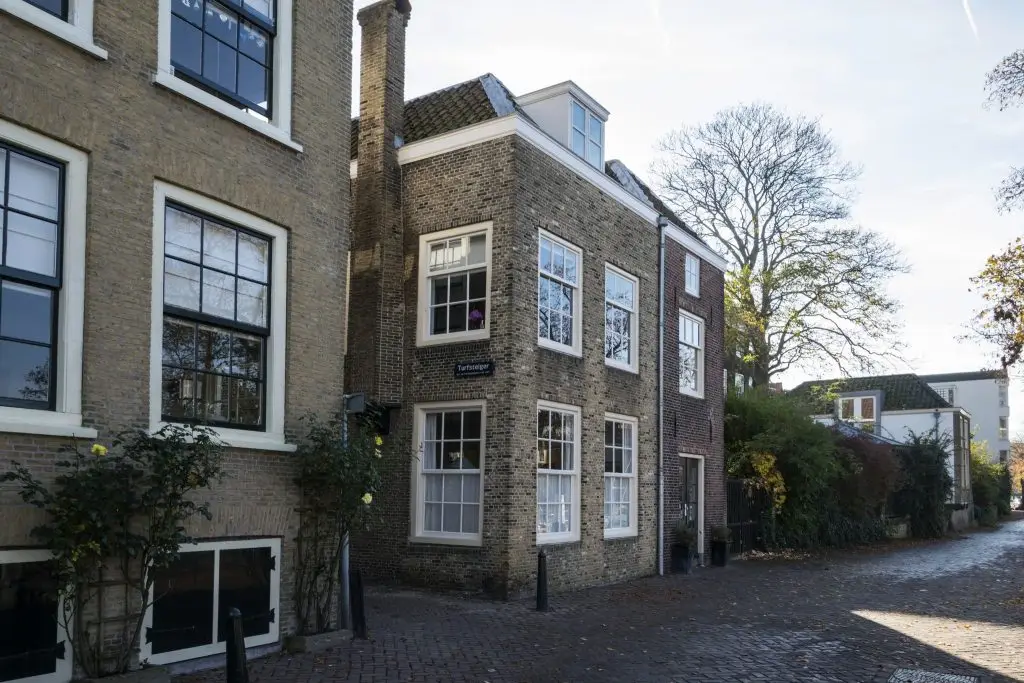 Property tax in the Netherlands requires careful calculation and planning. It is possible to reduce costs by challenging the WOZ, utilising exemptions and choosing the right property. Timely payment of fees and understanding of the taxation system can minimise risks and avoid penalties.
Property tax in the Netherlands requires careful calculation and planning. It is possible to reduce costs by challenging the WOZ, utilising exemptions and choosing the right property. Timely payment of fees and understanding of the taxation system can minimise risks and avoid penalties.